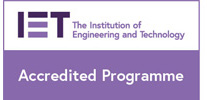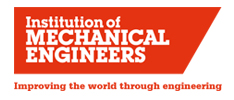Study with us and you’ll apply mechanical engineering principles to automotive and motorsport applications, developing the skills to analyse complex automotive systems and learning about the complex world of motorsport engineering.
You’ll have the chance to use and develop your theoretical knowledge, using computer-based models to design, implement and test your work. You’ll also gain valued transferable skills, such as presenting, writing, discussion and teamwork. As you progress, you’ll develop your skills further and create virtual environments within which your designs and simulations can run.
In your final year of undergraduate study, you’ll complete a major project and take specialist modules covering engine design, computational fluid dynamics (CFD) and finite element analysis (FEA).
Access to our industry standard rolling road, engine-dyno, fully equipped automotive workshop and race vehicles will bring real-world technologies to your learning.
Throughout the course, you will learn the skills necessary to apply the right technology to different areas of automotive motorsport – skills designed to catch the eye of employers in motorsport, the automotive industry, and second- and third-tier suppliers.
Add the support of experienced lecturers, and this really is a degree for students who are passionate about automotive and motorsport.
Study with us and you’ll apply mechanical engineering principles to automotive and motorsport applications, developing the skills to analyse complex automotive systems and learning about the complex world of motorsport engineering.
You’ll have the chance to use and develop your theoretical knowledge, using computer-based models to design, implement and test your work. You’ll also gain valued transferable skills, such as presenting, writing, discussion and teamwork. As you progress, you’ll develop your skills further and create virtual environments within which your designs and simulations can run.
In your final year of undergraduate study, you’ll complete a major project and take specialist modules covering engine design, computational fluid dynamics (CFD) and finite element analysis (FEA).
Access to our industry standard rolling road, engine-dyno, fully equipped automotive workshop and race vehicles will bring real-world technologies to your learning.
Throughout the course, you will learn the skills necessary to apply the right technology to different areas of automotive motorsport – skills designed to catch the eye of employers in motorsport, the automotive industry, and second- and third-tier suppliers.
Add the support of experienced lecturers, and this really is a degree for students who are passionate about automotive and motorsport.
Study with us and you’ll apply mechanical engineering principles to automotive and motorsport applications, developing the skills to analyse complex automotive systems and learning about the complex world of motorsport engineering.
You’ll have the chance to use and develop your theoretical knowledge, using computer-based models to design, implement and test your work. You’ll also gain valued transferable skills, such as presenting, writing, discussion and teamwork. As you progress, you’ll develop your skills further and create virtual environments within which your designs and simulations can run.
In your final year of undergraduate study, you’ll complete a major project and take specialist modules covering engine design, computational fluid dynamics (CFD) and finite element analysis (FEA).
Access to our industry standard rolling road, engine-dyno, fully equipped automotive workshop and race vehicles will bring real-world technologies to your learning.
Throughout the course, you will learn the skills necessary to apply the right technology to different areas of automotive motorsport – skills designed to catch the eye of employers in motorsport, the automotive industry, and second- and third-tier suppliers.
Add the support of experienced lecturers, and this really is a degree for students who are passionate about automotive and motorsport.
Academic year
The course operates on a modular basis that provides flexibility and choice. Typically the majority of modules are 30 academic credits with a smaller number of 15 credit modules. Each credit taken equates to a total study time of around 10 hours. Total study time includes scheduled teaching, independent study and assessment activity. Full-time students take modules worth 60 credits per semester, with part-time students taking proportionately fewer credits per semester. All students take a total of 120 credits per level and 360 credits for the degree as a whole. Your overall grade for the course and your degree classification are based on the marks obtained for modules taken at levels 5 and 6. The full-time course has one start point in September.
The course operates on a modular basis that provides flexibility and choice. Typically the majority of modules are 30 academic credits with a smaller number of 15 credit modules. Each credit taken equates to a total study time of around 10 hours. Total study time includes scheduled teaching, independent study and assessment activity. Full-time students take modules worth 60 credits per semester, with part-time students taking proportionately fewer credits per semester. All students take a total of 120 credits per level and 360 credits for the degree as a whole. Your overall grade for the course and your degree classification are based on the marks obtained for modules taken at levels 5 and 6. The full-time course has one start point in September.
The course operates on a modular basis that provides flexibility and choice. Typically the majority of modules are 30 academic credits with a smaller number of 15 credit modules. Each credit taken equates to a total study time of around 10 hours. Total study time includes scheduled teaching, independent study and assessment activity. Full-time students take modules worth 60 credits per semester, with part-time students taking proportionately fewer credits per semester. All students take a total of 120 credits per level and 360 credits for the degree as a whole. Your overall grade for the course and your degree classification are based on the marks obtained for modules taken at levels 5 and 6. The full-time course has one start point in September.
Professional body accreditation
Accredited by the Institution of Mechanical Engineers (IMechE) on behalf of the Engineering Council for the purposes of partially meeting the academic requirement for registration as a Chartered Engineer.
Professional body accreditation
Accredited by the Institution of Mechanical Engineers (IMechE) on behalf of the Engineering Council for the purposes of partially meeting the academic requirement for registration as a Chartered Engineer.


Professional body accreditation
Accredited by the Institution of Mechanical Engineers (IMechE) on behalf of the Engineering Council for the purposes of partially meeting the academic requirement for registration as a Chartered Engineer.

